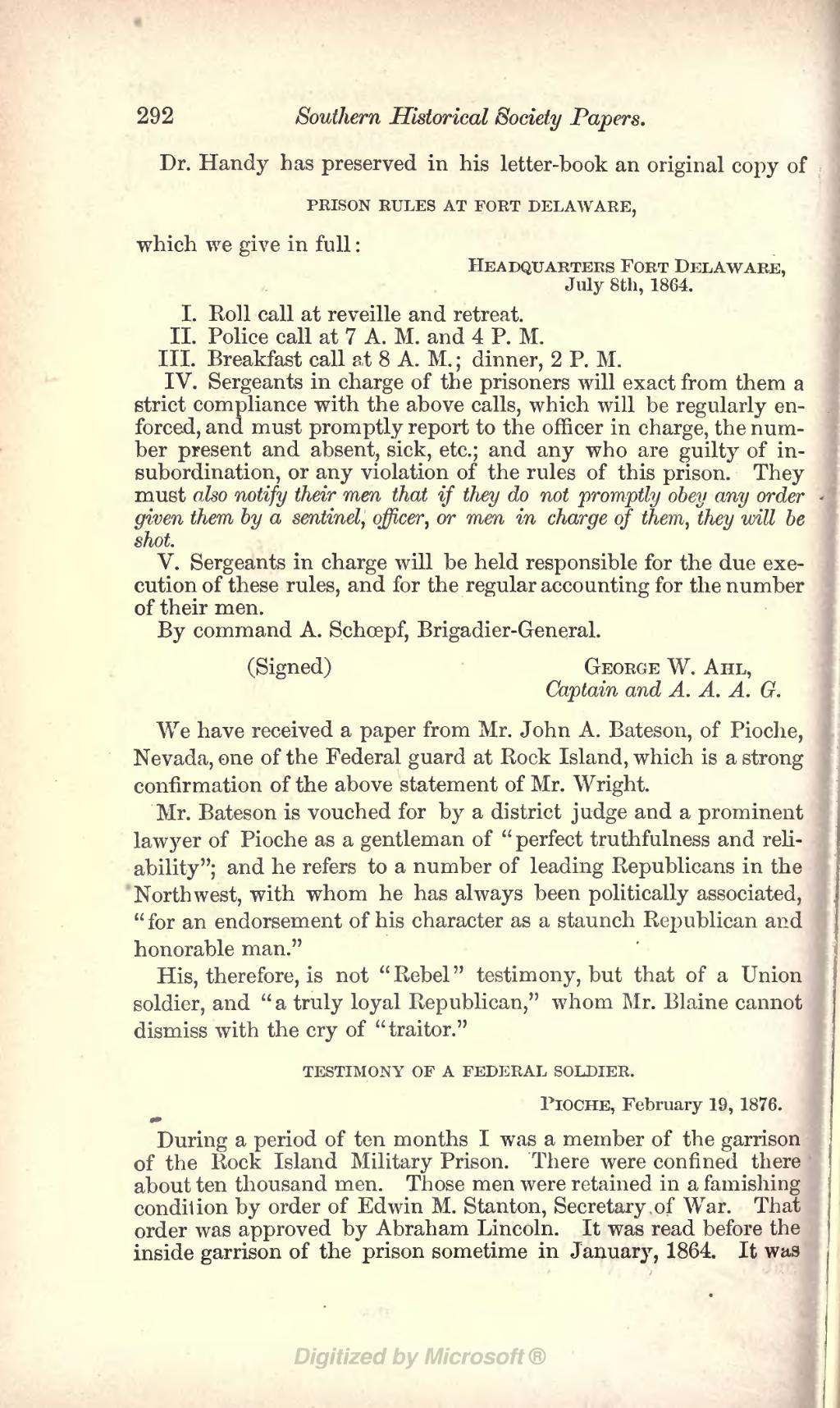Dr. Handy has preserved in his letter-book an original copy of
PRISON RULES AT FORT DELAWARE,
which we give in full:
July 8th, 1864.
I. Roll call at reveille and retreat.
II. Police call at 7 A. M. and 4 P. M.
III. Breakfast call at 8 A. M.; dinner, 2 P. M.
IV. Sergeants in charge of the prisoners will exact from them a strict compliance with the above calls, which will be regularly enforced, and must promptly report to the officer in charge, the number present and absent, sick, etc.; and any who are guilty of insubordination, or any violation of the rules of this prison. They must also notify their men that if they do not promptly obey any order given them by a sentinel, officer, or men in charge of them, they will be shot.
V. Sergeants in charge will be held responsible for the due execution of these rules, and for the regular accounting for the number of their men.
By command A. Schœpf, Brigadier-General.
Captain and A. A. A. G.
We have received a paper from Mr. John A. Bateson, of Pioche, Nevada, one of the Federal guard at Rock Island, which is a strong confirmation of the above statement of Mr. Wright.
Mr. Bateson is vouched for by a district judge and a prominent lawyer of Pioche as a gentleman of "perfect truthfulness and reliability"; and he refers to a number of leading Republicans in the Northwest, with whom he has always been politically associated, "for an endorsement of his character as a staunch Republican and honorable man."
His, therefore, is not "Rebel" testimony, but that of a Union soldier, and "a truly loyal Republican," whom Mr. Blaine cannot dismiss with the cry of "traitor."
TESTIMONY OF A FEDERAL SOLDIER.
During a period of ten months I was a member of the garrison of the Rock Island Military Prison. There were confined there about ten thousand men. Those men were retained in a famishing condition by order of Edwin M. Stanton, Secretary, of War. That order was approved by Abraham Lincoln. It was read before the inside garrison of the prison sometime in January, 1864. It was
